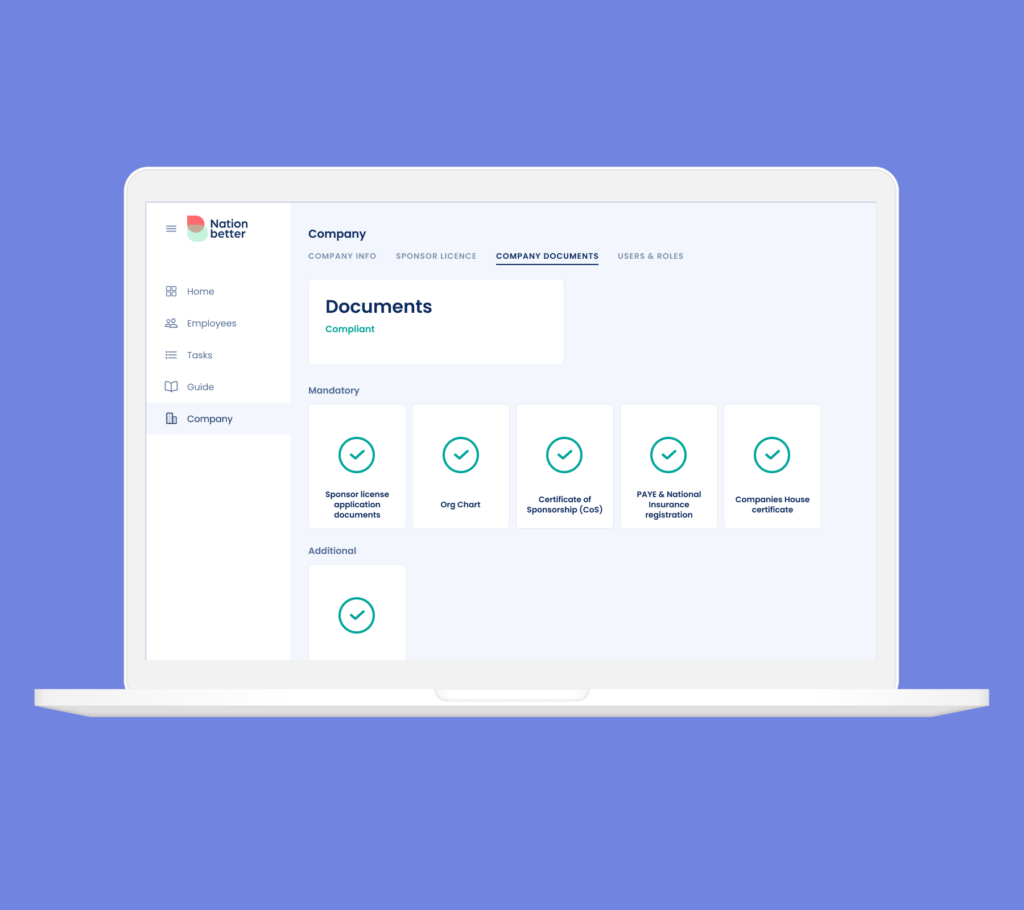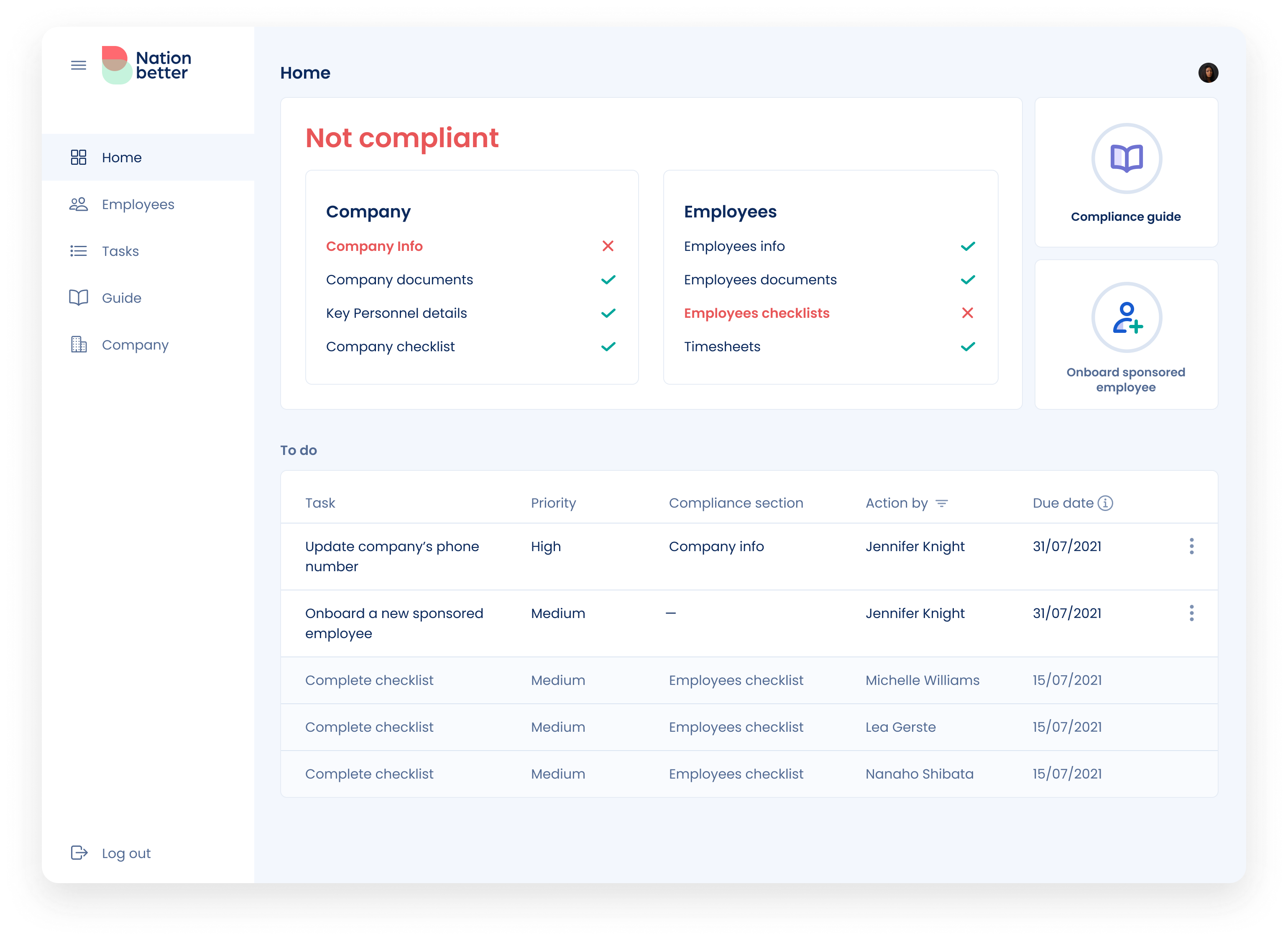Top 5 reasons why your sponsor licence application may have been rejected

Top 5 reasons why your sponsor licence application may have been rejected
A licensed employer must sponsor all EU and non-EU nationals travelling to the UK to work with a certificate of sponsorship as of 1st January 2021, after the EU free movement expired and the UK immigration rules underwent many modifications.
Because of this, it’s crucial for firms looking to sponsor skilled workers to be aware of the essential criteria they must meet for their application to be granted.
Here are some of the main reasons why your sponsor licence application can get rejected.
1.Submitting supporting documents late
When sponsoring a non-UK resident worker, the sponsor licence application needs to be presented with supporting documents.
These documents include proof that you’re a genuine organisation operating lawfully in the UK and are qualified to sponsor skilled workers. You’re required to submit these documents within 5 working days of submitting the initial application.
A common reason for rejection of a sponsor licence application is failure to submit these documents within the given time frame. In cases where the Home Office requires further documents and they’re not provided in time too, the application will be refused.
2.Presenting incorrect or false documents
The sponsor licence application may be cancelled for failure to submit accurate and genuine documentation.
All hardcopy papers must be originals or certified copies unless they’re submitted by email per the COVID-19 interim rules.
In some circumstances, the UKVI can verify paperwork online; in these situations, it’s required to provide a cover letter to the UKVI with the website link where the information specified on your documents may be located.
The Home Office also has the right to reject your application if false or fraudulent documents have been presented. Following this, your business may be subject to a cooling-off period—anywhere between six months and five years—before you can reapply for the sponsor licence.
A lack of the required supporting documents can cause a considerable delay in the approval of your application, even if it’s not denied.
3.Failing the genuineness test
Potential sponsors must explain why they need a sponsor licence and why they’re unable to fill the position with settled UK citizens. This includes stating in their application that they have found a suitable candidate.
In addition, the documents that you present with the application need to demonstrate that you’re a genuine company or organisation operating lawfully in the UK and are eligible to sponsor skilled workers.
Your application may be rejected if you fail to provide these justifications or if the Home Office determines that you acted in good faith but were simply unable to satisfy the genuineness test requirements.
In this situation, you must develop and support a strong business case with additional data to convince the Home Office that you require a specific foreign worker for a specific function.
The Home Office has the power to prevent an organisation from submitting a new application and will be subjected to a cooling-off period if they believe a sponsor acted dishonestly, such as by presenting a document they don’t believe to be genuine.
4.Lacking appropriate workplace procedures or systems
Sponsorship licence applications may occasionally be denied due to problems within your organisation, including problems with key personnel, partners, and procedures. Some common examples include:
- Background checks revealing that the key personnel designated to handle your sponsorship obligations don’t meet the required standards
- UKVI discovering that one of your essential employees has a history of immigration breaches or has unfinished criminal sentences for a related offence like fraud or money laundering
The application may also be rejected if the proper HR and record-keeping procedures are not in place.
Sponsors must show that they have the knowledge and resources necessary to carry out and uphold their responsibilities.
Companies can try using services like sponsorship regulation compliance platforms to ensure that their processes and procedures are up to the due standards set by the Home Office.
5.Having previous immigration breaches
The Home Office may reject the new application if the sponsor who’s applying for the licence has previously held a sponsor licence that was revoked.
Sponsors who violate sponsorship laws or regulations or who fail a Home Office compliance inspection risk penalties, fines, and licence suspension or revocation.
To prevent Home Office enforcement action, sponsors who are applying for a licence must comply with sponsor licence compliance requirements.
To avoid having their new application rejected, sponsors who have previously had their licences revoked or suspended must follow the organisation’s policies for managing licences and provide proof of their eligibility.
In addition, any candidate who has previously been penalised for engaging in illicit employment may also be subject to a longer cooling-off period.
Complete your application the right way
A sponsor licence application process can be time-consuming and demanding, and it can be discouraging to have your application rejected.
Working with a sponsorship regulation compliance platform can ensure that you have everything in place for success.

Related articles

Blog post heading
Sed ut perspiciatis unde omnis iste natus error sit voluptatem accusantium dolor...

Blog post heading
Sed ut perspiciatis unde omnis iste natus error sit voluptatem accusantium dolor...

Blog post heading
Sed ut perspiciatis unde omnis iste natus error sit voluptatem accusantium dolor...
